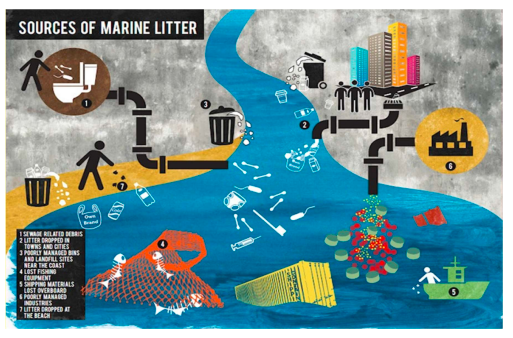
Plastic pollution impacts freshwater ecosystems and associated marine environments by affecting water quality, posing health risks to humans and animals, increasing floods risks, impairing water and transport infrastructure, and, if accumulated, becoming an aesthetic eyesore.
A growing number of studies recognize rivers as ‘conveyor belts’ transporting plastic waste from their catchment areas into our oceans and seas. However, for the Nile Basin, there is little data available on the quantity and impact of plastic pollution for the marine environment.
NBI is supporting its member countries to enhance their understanding on plastic pollution being transported by the Nile by scoping the current level of knowledge on plastic (micro and macro) waste transport from the Nile to the Mediterranean sea, preparing a scoping report on the sources and volumes of plastic waste entering the Nile from the various catchment areas, and raising awareness through policy briefs with recommendations on key areas of further activities.
The main objective of the scoping report is to achieve a comprehensive understanding of the current level of plastic waste pollution transported by the Nile. The specific objectives of the assignment were:To establish the current level of knowledge on plastic (macro ...
NBI Technical Report: Plastic Waste Transport from the Nile River and its Major Tributaries into the Marine Environment
The main objective of the scoping report is to achieve a comprehensive understanding of the current level of plastic waste pollution transported by the Nile. The specific objectives of the assignment were:
- To establish the current level of knowledge on plastic (macro and micro) waste transport by the Nile River to the Mediterranean Sea.
- To prepare a scoping report on the source and volume of plastic waste entering the Nile River from various catchment areas.
- To raise awareness through an NBI policy briefing with recommendations on key areas for further activities.


